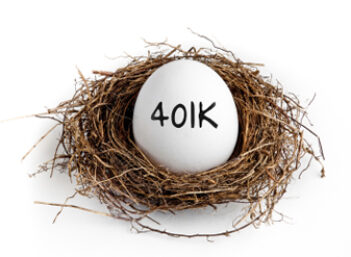We're so used to the idea that we need $1 million or $2 million to retire, that we forget about the real issue when it comes to our retirement spending.
There's something more important than just amassing millions of dollars in an account -- and hoping that a stock market crash doesn't wipe out half its value just before you retire.
More important than the size of your nest egg is your cash flow.
How Much Money Do I Need to Retire?
A report released by Standard & Poor's points out that timing matters when it comes to your nest egg.
If the market has years of negative returns at the beginning of your retirement, you can go through your nest egg rather quickly. That's because you will withdraw money each year, even as your capital losses add up, leaving you less principal to earn interest on.
The 4% withdrawal rule isn't going to save you if the market has three years of losses at the outset of your retirement. Indeed, years of losses at the beginning of your retirement have a bigger impact on your nest egg than years of losses later on.
On top of that, you can be psychologically shuttered by the fact that huge amounts of money are more difficult to picture than small amounts of money. To many of us, $2 million seems like a vast sum, and it's hard to consider how far it would really go.
Instead, consider your monthly income needs. Add your likely monthly expenses in retirement (use your current expenses as a starting point), and create a plan to help you develop income that will last you through retirement.
Here's how to do just that...
How to Create Income Streams that Last Through Retirement
It's true that your large nest egg can provide you with monthly income. Indeed, the reason why many try to build a nest egg of $1 million or more is to make sure there is enough money (with the help of returns) to meet monthly income needs.
However, rather than focusing on the big nest egg number, it's a better ideas to create reliable income each month. This is income that won't be as impacted by stock market drops. Plus, cultivating multiple streams of retirement income keeps you from becoming too dependent on one source of income.
Here are four ideas for generating income during retirement:
Dividends and interest: Begin building an income portfolio with the help of dividend-paying investments and interest-paying investments. During the building phase, reinvest your dividends and interest to help grow your portfolio faster. By the time you retire, you can have a tidy income stream from your investments.
Rental property: Owning rental property can be one way to create an income stream. As you approach retirement (or purchase more properties), you can hire a management company to take care of the hard work. That way you can enjoy a regular stream of income without doing the heavy lifting.
Business: Start a business. You can grow the business and either sell it (and use the proceeds to purchase a non-sketchy immediate annuity or buy dividend stocks that provide regular income) or retain interest in it. Either way, you have an income stream that isn't as dependent on stock market cycles.
Part-time job: You can work part time to generate income. This can include such jobs as consultation, freelance work, or the purchase and management of web sites for income.
If you have more than one source of income built up, you will continue generating income during retirement -- and you won't need to draw on your nest egg as much. Find ways to meet your monthly income so you can create greater financial independence later on.
While you don't want to neglect your nest egg, it might actually be more important to focus on finding diverse ways to generate regular monthly income. The more income streams you have, the less likely you are to experience financial devastation when one stream falters.
Tip: You will be more financially secure in retirement if you pay off your debts sooner rather than later. Here are three great ideas that will help:
1. Free yourself from credit card debt this year. Learn how to pay 0% on your balances for up to 21 months in The Top 4 Credit Cards for Balance Transfers.
2. Pay off your mortgage to free up an extra $1,000 to $2,000 every month. Check out 3 Ways to Pay Off Your Mortgage 15 Years Early.
3. Shrink and eliminate your car payments. If you're paying 6% APR or more, it's time to know The Top 3 Reasons to Refinance Your Auto Loan.



